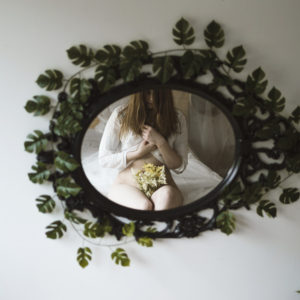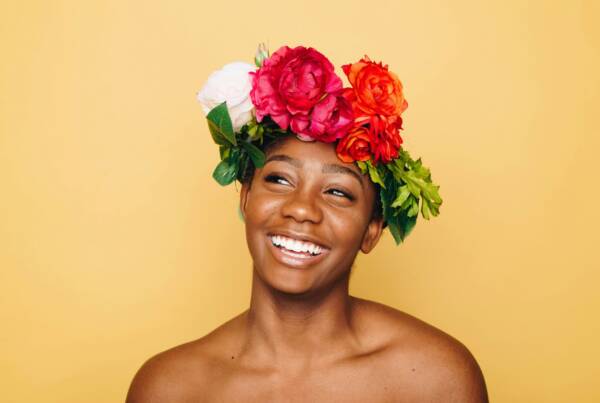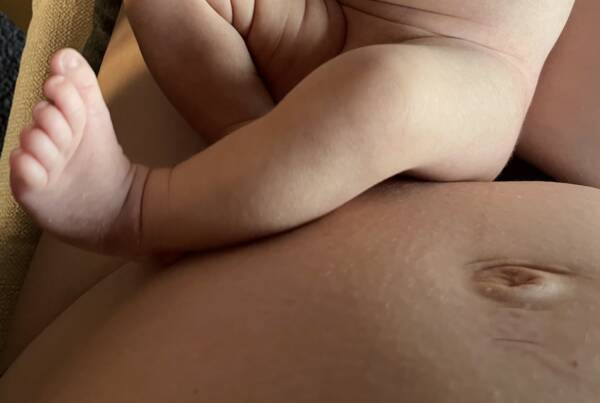Writing by Anonymous // Photograph by Sandra Montesinos
Writing by Anonymous // Photograph by Sandra Montesinos
“So, how old were you when you lost your virginity?”
“Dude, apparently she lost her virginity to him.”
“Do you regret losing your virginity?”
As someone who has recently done the whole “losing virginity” thing—as defined by societal norms—I now ask, what the fuck is all the fuss about this V-thing?
Why is it that these questions and statements surrounding the apparently all-important virginity come up so often in media, peer groups, and pop culture? What is it about the first time we have heterosexual penetrative sex—because of course, that is what all this “virginity” talk refers to anyway—that is so important anyway?
Lately, there’s been much writing and discussion in the media about the archaism of the concept of virginity, and how detrimental the stigma surrounding virginity and the demeaning assumptions attached to whether a woman is or isn’t a virgin can be.
However, I’m now asking a different question about virginity that could help shift these negative connotations, because after all, the loss of virginity is never a bad thing if the person “losing it” is okay with it—so my question is, why does virginity only refer to the first time having intercourse? Why is that more important, according to societal values, than any other sexual experience in our lives?
Before the first time I had penetrative sex with the first boy I’d ever been utterly, loyally, head-spinningly in love with, I considered myself a “virgin”, and wondered what the time I “lost my virginity” would be like. However, after it happened, I felt so indifferent, so undefined, that I knew this was one of the sexual experiences that had changed me the least– perhaps because it was the first time I’d engaged in a sexual act with somebody I really loved, and that made me feel so comfortable and happy that I didn’t need to feel worried, anxious, or “changed”? Or maybe because I’d participated in sexual things so much more unknown and unfamiliar, almost unsafe, before, that what we did in such a relaxed environment was just the next step in our relationship, not in the definition of my sexuality. I felt that it was the first time receiving oral sex, or the first drunken hookup with a stranger in an unfamiliar bedroom, or the first time I kissed a girl, to be so much more defining than the first time I had intercourse, and this led me to think about the ridiculousness of “virginity” and how unnecessary the concept is in the 21st century.
It was then that I realised this strange concept of “virginity” pushed upon teenagers by mainstream media and society is actually a load of bullshit. When I Googled the definition of virginity, it had two answers: “the state of never having had sexual intercourse” and “the state of being naïve, innocent, or inexperienced in a particular context”.
What pissed me off, though, was that the synonyms listed beside it included: virtue, honour, and purity—not surprising though, as that is generally what we teenagers, especially women, have grown up to understand. That the moment we have a penis in us, we have lost our “honour” and our “purity”, and maybe even that we are doomed to hell for eternity. That’s why, despite making some horrendous choices in the past years, such as drunken oral sex with people who didn’t respect me, or kissing people’s boyfriends or girlfriends, due to my lack of self respect and respect for others, I prized being a “virgin”. Look at me! I’m a Good Girl! I haven’t had a penis all up in my lady parts! I’m saving myself for that! Practically a saint!
The fact that I felt so indifferent after I had sex for the first time was probably because I did not consider myself “pure,” really, or “clean” to begin with, as I had had many interesting sexual experiences in all kinds of places with all kinds of people that just happened to not include penetrative sex, so it’s not like this act itself was the moment I left behind all my innocence at once.
“Losing my virginity” was not one specific moment in my life that changed my body and mind forever, but instead a collection of experiences from around the age of fourteen that sum up to the development of my sexual self, body, and desires. And I wasn’t “losing” anything—in fact I was gaining maturity and knowledge about acts that almost everyone around the world experiences at some age, and building up my emotional perception and opinions of this as well as exploring the physical sensations it brought, and that’s not a dirty thing, or a shameful thing, or something that destroys my morals or values, it’s simply a part of life that organically evolves and develops for everybody. And the journey isn’t over; it’s not like, bam, I’ve had penetrative sex, that’s it for me, I’ll never experience anything new sexually ever again. It’s only one part of the fun time that is sexual exploration (fuck yes), not the loss of anything new and unfamiliar to ever experience.
I found the act of lying fully naked next to the boy I adored after the fact to be a much more intense experience than the actual sex itself—that is, I found the act of falling in love, something scary and unfamiliar and wonderful, a much more defining experience than eventually having sex with him. To be with someone in complete comfort, accepting each other’s bodies, talking shit and laughing, to me, was giving so much more of myself to him than giving him my “virginity”.









